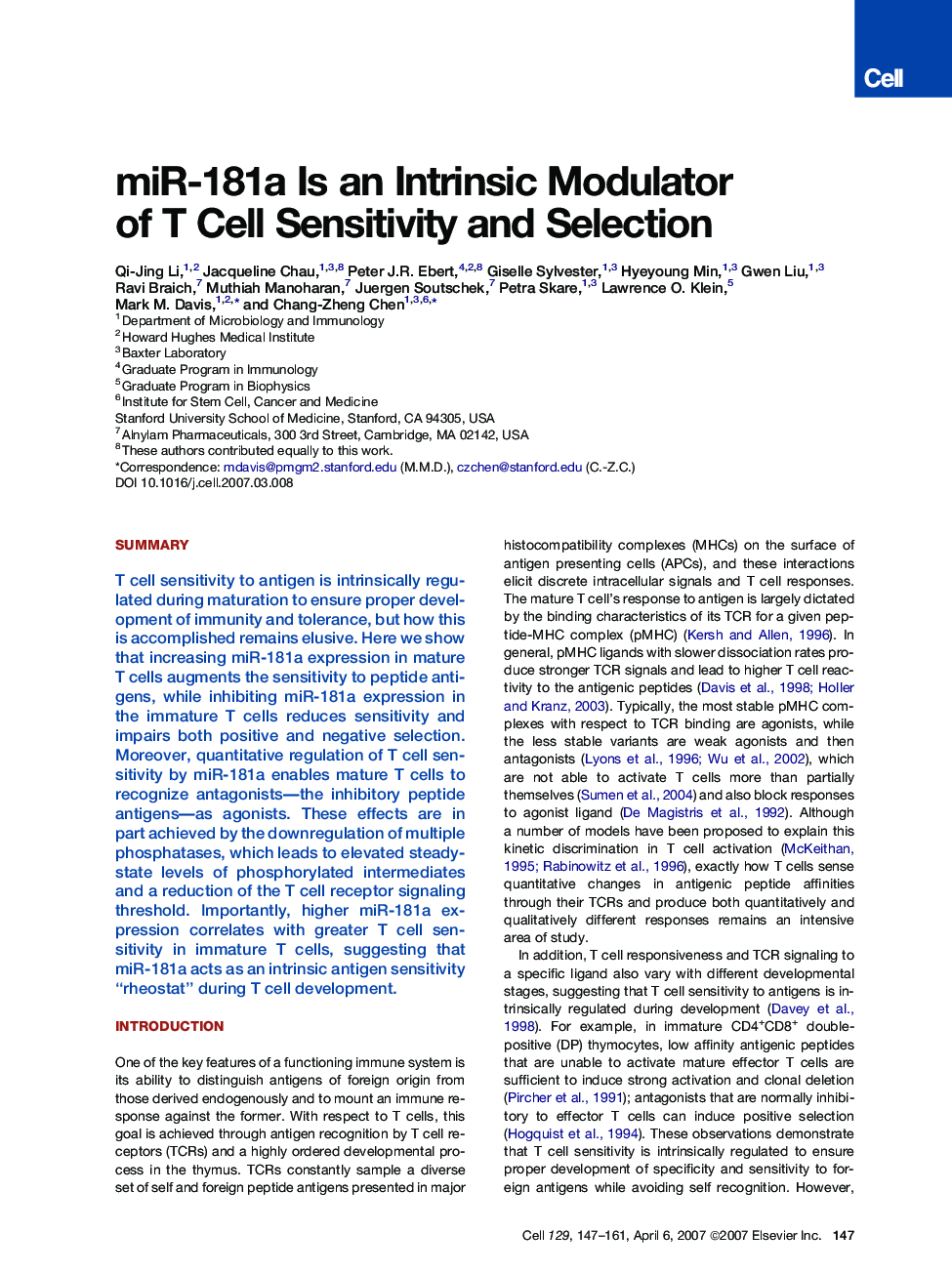| Article ID | Journal | Published Year | Pages | File Type |
|---|---|---|---|---|
| 2038356 | Cell | 2007 | 15 Pages |
SummaryT cell sensitivity to antigen is intrinsically regulated during maturation to ensure proper development of immunity and tolerance, but how this is accomplished remains elusive. Here we show that increasing miR-181a expression in mature T cells augments the sensitivity to peptide antigens, while inhibiting miR-181a expression in the immature T cells reduces sensitivity and impairs both positive and negative selection. Moreover, quantitative regulation of T cell sensitivity by miR-181a enables mature T cells to recognize antagonists—the inhibitory peptide antigens—as agonists. These effects are in part achieved by the downregulation of multiple phosphatases, which leads to elevated steady-state levels of phosphorylated intermediates and a reduction of the T cell receptor signaling threshold. Importantly, higher miR-181a expression correlates with greater T cell sensitivity in immature T cells, suggesting that miR-181a acts as an intrinsic antigen sensitivity “rheostat” during T cell development.
